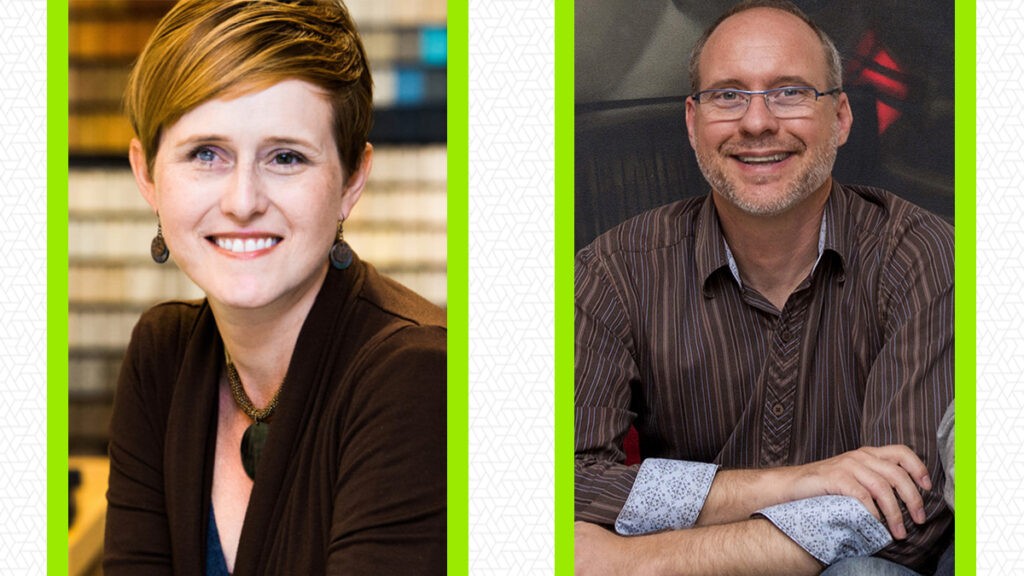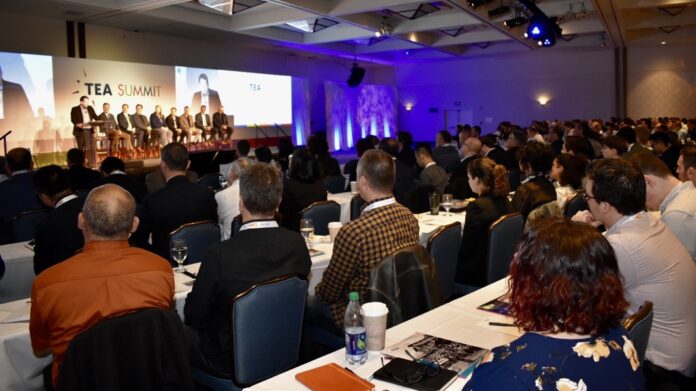This article is a transcript of episode 25 of InPark Tracks, our podcast on all things themed entertainment.
In this episode of InPark Tracks, Global Director of Marketing and Communications for RWS Entertainment Group Clara Rice asks Luc Mayrand, Vice President Creative Portfolio Executive at Walt Disney Imagineering, about the upcoming TEA Summit and Thea Awards Gala, back as a live in-person event for 2022.

In this conversation, the two Themed Entertainment Association (TEA) leaders discuss the process in which the Thea Awards are selected, the new addition of the Catalyst Award and their favorite parts about the gala (spoiler: Luc can’t wait to break out the tuxedo).
Clara Rice: Hi, I’m Clara Rice, Global Director of Marketing and Communications for RWS Entertainment Group and a TEA International Board Member. I’m here with Luc Mayrand, Vice President Portfolio, Creative Executive at Disney and Chair of the Thea Awards Judging Committee to talk to you about the TEA Summit and Thea Awards Gala Weekend, happening at the Disneyland Hotel, April 21-23. Tickets are available at www.teaconnect.org.
Thank you for joining me today, Luc.
Luc Mayrand: Thank you, Clara. It’s great!
CR: Let’s jump right in: the theme of the weekend is “Are We There Yet? Refocusing and Preparing for What’s Next.” As an industry, in your mind, post-pandemic, where do you think we are? And how will seeing the amazing projects that are featured on case studies day and then during the Thea Awards Gala help us prepare for what’s next?
LM: Well, I think that every Gala — and we’re so glad to be able to have one in person finally — and the Summit as well is an opportunity for us to reaffirm our commitment to our guests and to the art that we make for them, taking a moment to go back to our roots. Especially after two years of pandemic and as things are starting to spool up again, to remember why we do this and how important it is to entertain our guests and how well the projects that we honor in the Theas did it and why we do this is really, really important. So it’s important to look at how we’re all coming out of it, recognize what’s changed, but also what hasn’t changed, which is our fundamental values of wanting to make people happy and bring them together, because we think that makes the world a better place. So we can look at it with fresh eyes and renewed purpose.
CR: And I think there’s also that added fundamental need to connect and, in this case, reconnect and to gather and to share ideas and to be inspired as a membership unit. And so I think that’s also what the Thea Awards Case Studies and Thea Awards Gala will bring: just a chance to celebrate that we made it, that we’ve gotten this far, that we’re inching our way back or maybe forward to a new and better reality than we had before.
For those who have never attended Summit Case Studies Day or the Theas, can you provide an overview of what they can expect on case studies day and during the gala?
LM: Theas are awarded to projects to recognize and celebrate excellence. We look for projects that really highlight that. TEA is the organization that collects all the members that did this work; the case studies is where those two things meet. It’s where we get to share peer to peer. This is where we get to learn from each other. It’s where we get to see those best practices in play, also, but also see some of the examples of things that may not have happened the way that people wanted them as they learned as they did the work. It’s really exciting to get that under-the-hood kind of view of things and to hear directly from people who created this stuff.
But also what I think is great is the purpose of the Theas, the studies, and that whole summit is a chance to start conversations, a chance to talk about things because you get excited by something you see, by what you hear, you have a question, you meet somebody interesting, and this is where you get these great moments of departure.
CR: For those who have previously attended the summit and/or the Thea Awards Gala, what can we expect this year that’s different? And why is the evolving format important?
LM: I think that certainly adapting is something that we’ve learned about a lot over the last couple of years. So looking forward, obviously, we’re gonna keep doing that.
What’s different this year is on Case Studies Day — [TEA Summit] day number two — instead of grouping the projects by categories, we looked for themes that grouped some of the underlying either material or values or experiences that are in those projects to create these themes.
So there’s six themes, and in a way that connects with another fundamental thing in the summit, which is getting back to our why. That’s reflected in the themes — surprise, play, nature — those things that are very important to folks that they come to look for inspiration or just doing the impossible. And so you’ll find those in those themes, and the hosts will help to connect those through and bring those out from the projects as well.
CR: You hinted on it a little bit in your previous answer, but can you give listeners more of a sense of the hours and hours and hours that the committee puts into selecting the Thea Award recipients in a given year? I mean, that is some serious dedication of a large group of very busy professionals.
This is not just a couple of week or a couple of month process; that it really is a year round process.
LM: I have to say it’s a lot of work, but everybody’s enjoying it. People don’t do this unless they really want to do it. And it’s also clearly an honor to do it, to look at all this work and to feel the pressure and the obligation to be fair to all of the work that’s represented there.
Throughout the year, we really try to get ahead and invite as many submissions as we can. When it’s time to collect the materials we refashioned the platform, so it’s entirely digital and it’s easy to do from any device you have at any time; it’s not very difficult. So we try to make the process easier. And then, during the submittal process, we’re all sitting quietly wondering what’s gonna come out. The last hour comes and most of the submittals — I have to say — they come in the last couple of days. So, if you can do us a favor, just go a little earlier. But in any case, once they arrive, then we know what we have. The last few years it’s been close to 300, and I expect it’s only gonna grow as our industry gets more and more expanded.
So now you have to narrow these down, and it takes all those brains looking at it. We have typically only about eight weeks between the time that the submittals close and then when we have to propose a final slate, roughly. We meet every single week for many hours. Everybody takes work home; we all have homework to evaluate. And several subcommittees are created to handle different areas, like museums, attractions and so forth. And then that culls it down to a certain number — maybe like 50 or so — and then the really, really hard work starts because these are all great entries, right?
And now you have to chip at it until you get to a reasonable number. That’s all done with incredible dedication, but also it’s really great to hear all the perspectives. These are some of the top folks in our industry.
And between all of those, we get to that last slate of under 20 total honorees. And it’s really cool because every year it feels like such an accomplishment to do that. And it’s very proud also to look at all this work and to say, “Wow, let’s all celebrate what we can all do!”
CR: I must say I do geek out a little bit over the Thea Awards Gala. My coworkers actually make fun of me because I get so excited, and I consider it one of my favorite nights of the entire year. What do you think it is about the Thea Awards Gala itself that generates so much excitement in the TEA membership and all of those who have the opportunity to attend?
LM: For me, it goes back to probably why it was founded and how it was founded by some of the early folks.
We’re all there to celebrate excellence. So I think the spirit of it is very, very positive. And we get to sit side by side and enjoy the evening, and there’s so many conversations that happen.
So I’m crossing fingers that we’ll see a lot of folks this year again because it’s the one night where you get to wear a tux and feel special. And you’re like, “Wow! Okay. We all clean up pretty good!”
CR: Now this is the first year for the Catalyst Award. Can you talk a little bit about that and why that was an important add to the program?
LM: So the Catalyst Award was something that came out of a lot of reflections over the past few years stemming mostly from the fact that the Thea’s purpose is to recognize excellence in our industry and individuals as well as in projects. And the Buzz Price Thea Award – Recognizing a Lifetime of Distinguished Achievements is fantastic, and it’s a very important award to recognize one person, but the criteria for that award pretty much point to a select group of people because it’s 30 years of accomplishment, sustained presence in the industry and all these things.
And once you do that, it basically says, well, we have to focus on this group of people that has been in the industry forever. But there are many other people that are doing incredibly important work in changing the culture of our industry and how we evolve the work that felt like we wanted to be able to underline and celebrate.
And those people might have worked — just like the projects in the Theas — in the last couple of years and changed some significant things. And that’s why the Catalyst was created: to try and recognize what’s happening and not demand a person that they’ve done it for 30 years.
CR: Who should come to case studies day and the Thea Awards Gala?
LM: Anyone who’s curious about the work and passionate about the work will find something here and will also connect with their soon-to-be friends.
I think some younger members might feel like, “Well, I don’t belong there.” These are great events to be part of and actually get to meet people in person, right? And actually make that first contact.
I look forward to seeing as many of you as possible. And please do jump in to participate any time you can. And I look forward to seeing all of your great projects show up in the submittals and hopefully in the Theas in the future.
CR: And I look forward to seeing you, Luc, and everybody else, that’s gonna be there for the TEA Summit, TEA case studies day and the Thea Awards Gala. I just want to take a moment to also thank our sponsors for the weekend: our Thea Awards presenting sponsor Chimelong, our TEA Summit Reception sponsor The Hettema Group, our TEA Summit gold sponsor and lanyard sponsor Panasonic, and our other TEA Summit gold sponsors — Nanolumens, Valtech and RWS Entertainment Group including JRA. I’m Clara Rice, Global Director of Marketing and Communications for RWS Entertainment Group. Joining me today was Luc Mayrand of Disney and the Chair of the TEA Thea Awards Judging Committee. And I want to thank you for listening today.
* * *
InPark Tracks is a production of InPark Magazine. The executive producers are Phillip Hernandez and Martin Palicki. The music used for this episode is from Kevin MacLeod. This episode and its transcript were edited by Jordan Zauha with post-production by David Swope. The InPark staff includes Judith Rubin, Joe Kleiman, and Jordan Zauha.






